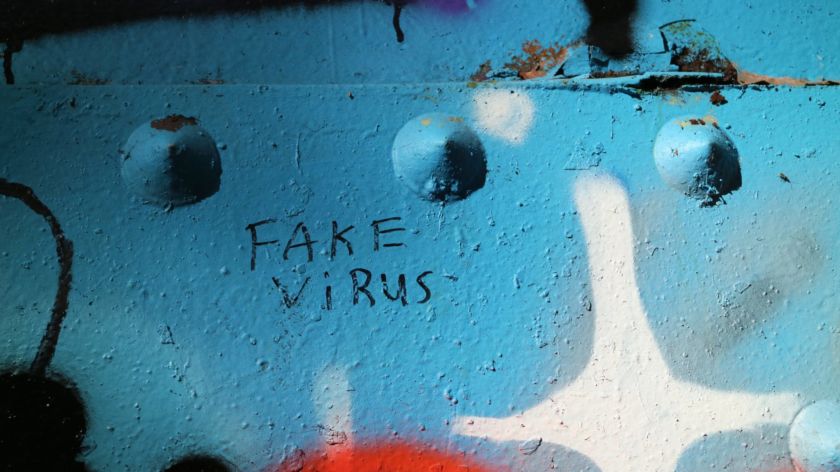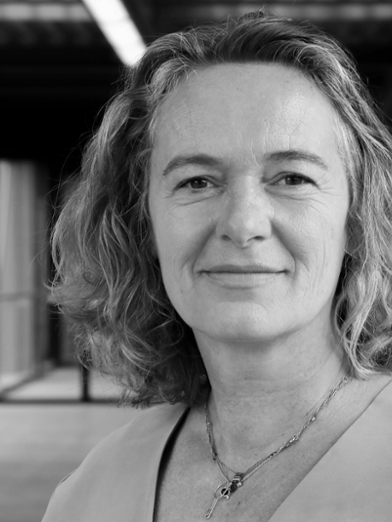‘Social media contribute to the spread of conspiracy theories’
-
 Beeld: Flickr
Beeld: Flickr
These are interesting times for Enny Das. The Professor of Communication and Persuasion investigates media and fear in times of epidemics. She says that the role of media in the corona crisis should not be underestimated. ‘In talkshows, people without any relevant expertise are offered quite a big stage.’
Reading the news doesn’t cause for a celebration these days. Brazilian and Zuid-African mutations of the corona virus are gaining ground. The British mutation pushes up the R-factor with 0,7. And in one of many press conferences, Mark Rutte and Hugo de Jonge proposed to introduce a curfew.
Enny Das, who researches how epidemics are treated in the media, has been glued to the TV lately. She stays on top of the news. ‘At the moment the main focus is on the insecurity about the British strain,’ says the Professor of Communication. ‘I can imagine that the government and the Outbreak Management Team make calculations for different scenarios, in case this variant starts to spread rapidly in the Netherlands.’
Most news is about the corona pandemic these days. Aren’t people getting tired of that?
‘Media like to report on what people want to hear about most and what is going on in society. That has a downside. When the Mexican flu hit Mexico and the United States, there were a lot of news reports about it here. The big question was if the flu would cross the ocean and come our way. When the epidemic reached Europe, the amount of news reports actually decreased, even though the risk at that point was much bigger. People were already fed up with the news about the virus by then.’
‘When people become tired of the epidemic, they find it harder to follow the rules. But for corona it’s a different story. The fact that there are still a lot of news reports about corona, suggests that the demand for news stays high. There still is a lot of insecurity, currently about the English variant. In the end people always want to know if they are in danger or not. As long as that’s not clear, there will be news reports.’
Are media covering the corona crisis in a sufficient critical manner?
‘In research that was conducted before, we interviewed journalists about how they deal with epidemics. They said that their watchdog-function, controlling those in power, moves more to the background when people are in grave danger. They then often work together with experts – in this case epidemiologists, because the consequences of the news coverage are bigger. At the start of a pandemic or a natural disaster, journalists tend to be less critical of the government and focus more on how they can serve the public. When most danger has passed, they return to their traditional role.’
Some people still say that corona is a hype or just a flu. Do media help spreading those conspiracy theories?
‘Especially social media are contributing to this spread. At the moment we’re finalising a study on the effects of echo chambers on YouTube: the idea that based on your searching behaviour, you are offered more and more extreme content, because it increases the chance you keep watching. That study shows that conspiracy theories about vaccinations have an impact on people, even when they feel positive about getting vaccinated. Even the biggest nonsense on YouTube has an impact on a strong believe in something.’
Aren’t traditional media playing a part in the spread of conspiracy theories, by inviting conspiracy theorists in a talk show for example?
‘Journalists are sometimes bored by just interviewing experts. That’s why people without an education or expertise are sometimes offered a stage. But an organisation like Kritisch Prikken doesn’t represent that many people. An expert has not much to gain by joining such a debate, because the discussion is not open. There is no middle ground.
‘Too much attention is given to the people of Viruswaarheid’
‘Sometimes we forget that the majority of Dutch people has a very moderate opinion. The only thing is: that’s not news. But still, there’s a lot of attention given to people of Viruswaarheid.’
Can media coverage on vaccination lead to more people willing to get vaccinated?
‘That’s hard to say. When the vaccinations were still something in the distant future, less people were willing to get vaccinated. Right now it has become a very possible option, so that number has increased. People are often focused on their own lives: they will actually start thinking about getting vaccinated when the vaccination is there. Almost all nursing homes were the vaccination program has started, are getting news coverage. The news angle is often positive: everyone is happy that the vaccine is there. Maybe that can persuade people to get vaccinated too.’




